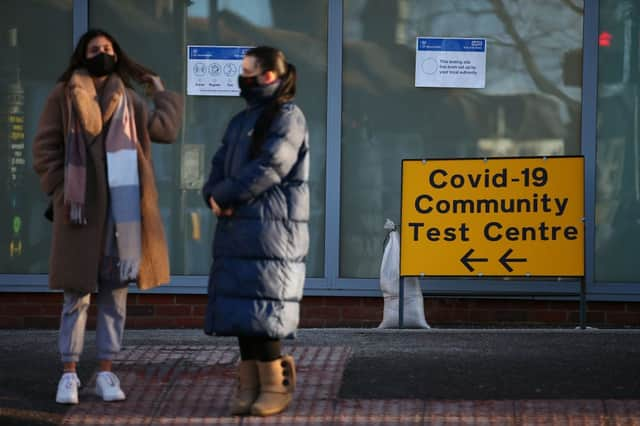Entire streets could be locked down to stop spread of Covid variants, says expert


Entire streets getting locked down could be an effective and crucial way of keeping potential outbreaks of new Covid-19 variants under control, according to an expert.
Dr Jeffrey Barrett, Director of the Covid-19 Genomics Initiative at the Wellcome Sanger Institute, said that the measure could be the best way forward.
‘Important part of keeping outbreaks small’
Advertisement
Hide AdAdvertisement
Hide AdSpeaking on BBC Radio 4’s Today programme, Dr Barrett said that it was important to deploy “the most effective measures possible” in order to contain these outbreaks.
When asked whether clocking down entire streets would have a medical impact on clusters of cases, the doctor said it “certainly would”.
He said: “Well it certainly would, because one of the trickiest parts of this virus overall is, of course, some individuals who are infected don’t have symptoms and so they can transmit.
“Trying to use interventions that might stop asymptomatic transmission may well be an important part of keeping outbreaks of these new variants to be as absolutely small as possible.”
‘The most effective measures possible’
Advertisement
Hide AdAdvertisement
Hide AdDr Barrett added that there could be a possibility that new variants of the virus will be “less well neutralised” by vaccines, therefore “it’s really important to be able to try and keep that number as close to zero as possible”.
So far, restrictions have kept the number of new variants “very small”.
Dr Barrett said: “As the restrictions are lifted the key thing to watch will be, does that number ever go up sort of week by week, and if so that’s really important to deploy the most effective measures possible to contain those outbreaks.”
‘We need to get ahead of the infection’
Professor Kevin Fenton, London’s Regional Director of Public Health England (PHE), said proactive surge testing for new virus variants is required to help officials “get ahead of the infection”.
Advertisement
Hide AdAdvertisement
Hide AdSpeaking to the BBC Today programme, Professor Fenton said: “As we begin the process of unlocking and re-entering society and mixing, even small numbers of variants, when they occur, can have the potential to spread relatively quickly.
“And that is why we have such a proactive programme of screening for and testing for the new variants, and, where we have found, we surge.
“We need to get ahead of the infection, and not keep following behind it.”
The Professor added that vaccines and surge testing are part of a “package of interventions” for navigating life with Covid-19 in the future.
A version of this article originally appeared on our sister site NationalWorld